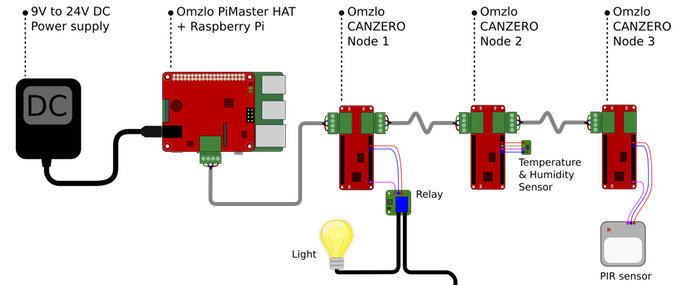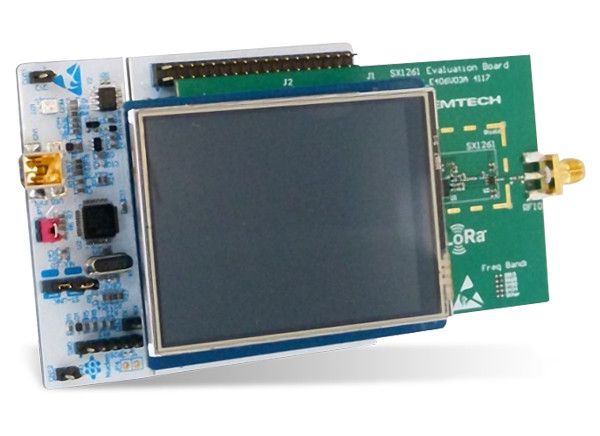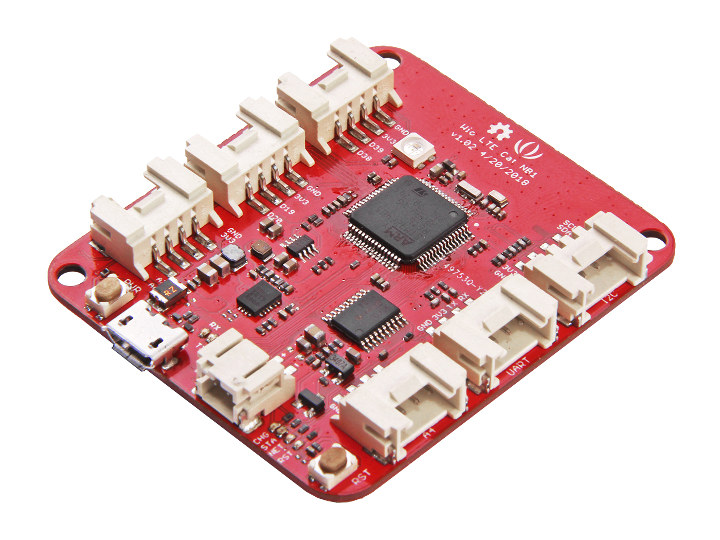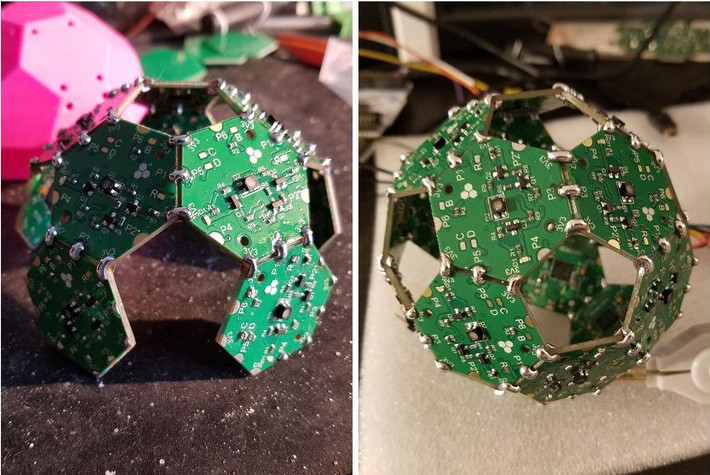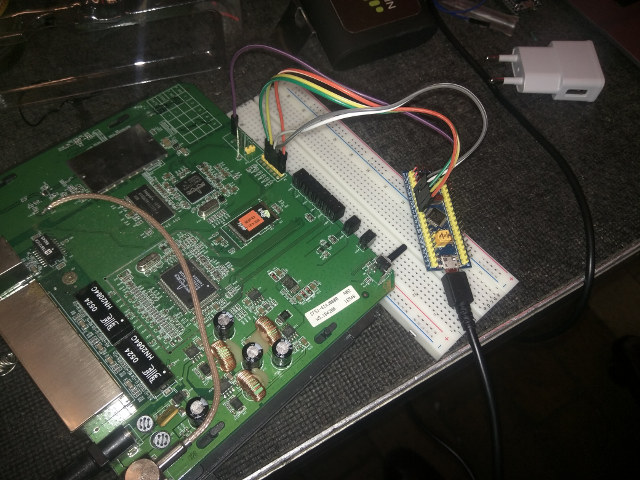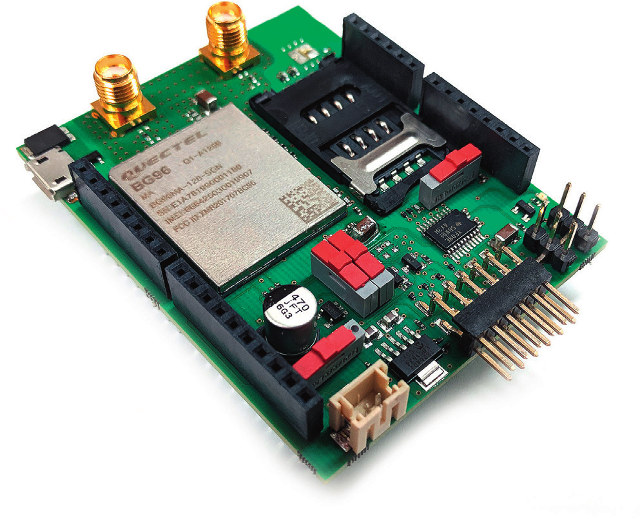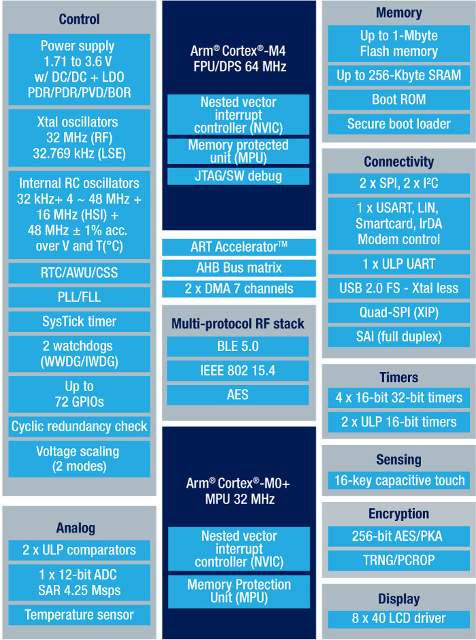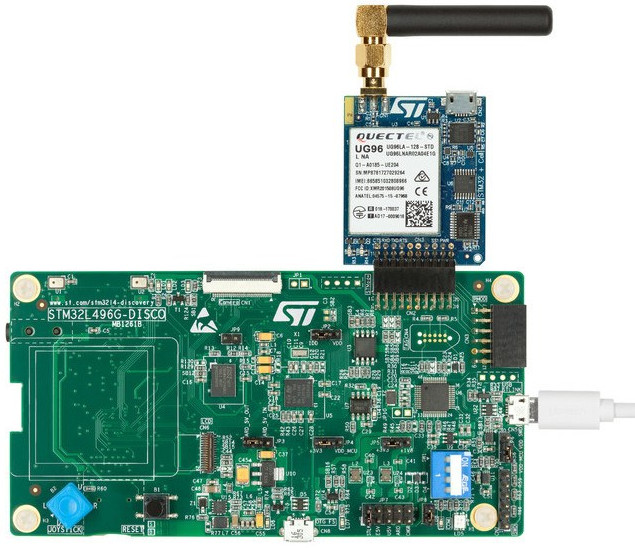Many IoT projects rely on wireless connectivity through WiFi or Bluetooth, but in some cases it may be more reliable and convenient to use wired connectivity. The CAN Bus is a little like a low bandwidth Ethernet PoE solution for IoT, as it allows to transfer data over a serial connection while provided power at the same time, and can be daisy chain to support multiple boards. Omzlo’s NoCAN IoT platform provides a CAN bus solution leveraging Raspberry Pi 3 board through their PiMaster HAT acting as a CAN bus gateway, and Arduino compatible CANZERO boards to which you can connect sensors and actuators. Omzlo PiMaster HAT specifications: MCU – STMicro STM32F042 Cortex-M0 32bit ARM MCU – 48Mhz. Networking – 125000 bps CAN bus up to 300 meters range GPIO – Communicates with Raspberry Pi through SPI + GPIOs Security – Smart power switch with over-current protection. Power Supply – […]
Semtech SX1261/SX1262 LoRa Development Kit Now Available for $305
Semtech announced SX1261, SX1262 and SX1268 LoRa chips in January as updates to their current LoRa solutions with a lower footprint, better efficiency, and even longer range. Mass production and development kits were expected in March 2018, and today I found out Semtech SX1261/SX1262 development kit is sold on Mouser for $305. The SX126xDVK1CAS kit comes with the following items: 2x SX126xMB1xAS RF modules including an ST Nucleo Mbed board and a touchscreen 2x Mini-USB / USB connection cables 2x 868/915MHz antennas 2x Mini-USB cables 2x touchscreen styluses Read-Me Note The SX1261/SX1262 LoRa Transceivers offer continuous frequency coverage from 150MHz to 960MHz. You’ll find information to get started in the user guide. Basically, the two boards will show a menu on the touchscreen with radio test modes, settings and utilities (e.g. firmware update) as well as two demos: DEMO Ping Pong performs a bidirectional range test between the two radio […]
Wio LTE GPS Tracker Board Gets a Cat M1/NB1 Version for $59
Seeed Studio launched a family of GPS tracker boards staring with Wio GPS with 2G cellular connectivity, followed by Wio LTE board offering 4G connectivity several months later. The company is taking pre-order for an LTE Cat M1/NB1 version with NB-IoT / eMTC connectivity, and going for $59 plus shipping. The board is expected to start shipping on July 25th. Wio LTE Cat M1/NB1 board specifications: MCU – STMicro STM32F405RG Arm Cortex-M4 @ 168MHZ with 1M Flash, 192+4KB RAM Connectivity LTE uBlox SARA-R410M module LTE CAT M1 and NB-IoT Cat M1 Half-duplex (375 kb/s DL and UL) Cat NB1 Half-duplex (27.2 kb/s DL, 62.5 UL) Nano SIM and micro SD card 2-in-1 socket GNSS uBlox MAX-M8Q module PS, BeiDou, GLONASS, and Galileo 2.5m CEP(GPS), 4.0m CEP(GLONASS) USB – 1x micro USB port for power supply and DFU Expansions – Grove headers: 2x digital, 2x analog, 1x UART, 1x I2C Misc […]
Hexabitz Modular Prototyping Platform Enables Wire-Free 3D Electronics Designs (Crowdfunding)
A few years ago, I made a Raspberry Pi case made of perfboard and created some sort of DIY modular 3D electronics design by using the top and sides of the case to also hold electronics components and associated circuitry like a relay, and LEDs. The just launched Hexabitz hexagonal / pentagonal modules are designed to make prototyping easier, and also provide flexibility to create all sort of wire-free (3D) electronics designs with minimal soldering. A little over a dozen of modules are currently on offer, most with an STM32F0 Arm Cortex M0 micro-controller: Modules with built-in MCU 01R00, P01R00 – RGB LED (hexagon / pentagon) with Cree Tri-color (RGB) SMD LED, 4-Pin PLCC H02R10 – Bluetooth/BLE V4 based on Laird BT900-SA + chip antenna, +8 dBm max H04R00 – Audio amplifier, speaker, and headphone jack based on ST TS4990IST 1.2W audio power amplifier, 0.7W, 8 Ohm speaker H05R00 – SPI […]
DirtyJTAG Firmware Convert $2 STM32 “Bluepill” Boards or ST-Link V2 Clones into JTAG Adapters
DirtyJTAG is a JTAG adapter firmware for cheap STM32 boards like BluePill or equally inexpensive ST-Link V2 clones that was developed to create an alternative to the cheap – but now obsolete – LPT Wiggler cables, and more expensive USB JTAG probes. You’ll find the source, and documentation on Github. First, you’ll need to flash the firmware using the DFU method or an SWD programmer (for ST-Link) or USB to TLL debug board (for STM32 dev boards), before making the connection to the target board as shown below (for Bluepill). STM32 JTAG PA0 TDI PA1 TDO PA2 TCK PA3 TMS PA4 TRST PA5 SRST You can then use mainline UrJTAG for your newly flashed JTAG adapter. If you prefer OpenOCD, it might eventually be possible to use Versaloon firmware instead on STM32 Bluepill board. Thanks to Zoobab for the tip. Jean-Luc Aufranc (CNXSoft)Jean-Luc started CNX Software in 2010 as a […]
Avnet Silica NB-IoT Sensor Shield Works with mbed OS 5, STM32 Nucleo Board
If for some reasons, none of the many NB-IoT boards launched recently suit your needs, there’s yet another option with Avnet Silica NB-IoT sensor shield, that supports – despite the name – also supports LTE Cat M1 (eMTC) beside NB-IoT (LTE Cat NB1), and comes with Arduino headers, as well as a Pmod connector. The board relies on Quectel BG96 module, and can be controlled with Arm mbed OS 5 when connected to STM32 Nucleo board. NB-IoT Sensor Shield specifications: Cellular Module – Quectel BG96 LPWA Module Multi Modes: Cat.M1, Cat.NB1, EGPRS Global bands Cat M1/NB1: B1 B2 B3 B4 B5 B8 B12 B13 B18 B19 B20 B26 B28 B39 (B39 for Cat M1 only) EGPRS: 850/900/1800/1900 MHz Voice Over LTE support (M1 only) – PCM digital audio interface SIM card holder (also optional embedded SIM) Optional GNSS – GPS, GLONASS, BeiDou/Compass, Galileo, QZSS Expansion – Arduino headers, Pmod connector […]
STMicro STM32WB Dual Core Cortex M4/M0+ MCU Comes with Bluetooth 5 & 802.15.4 Radios
STMicro has announced yet another family part of their STM32 portfolio with STM32WB micro-controller family featuring an Arm Cortex M4 application core, a Cortex M0+ core to offload the main core of networking tasks, as well as Bluetooth 5 and 802.15.4 radios. The MCU’s 802.15.5 radio can run other wireless protocols concurrently, including OpenThread, ZigBee, or proprietary protocols used to connect devices to the Internet of Things (IoT). STM32WB MCUs share the following key specifications: Application Core – Arm Cortex-M4 CPU @ up to 64 MHz with FPU, adaptive real-time accelerator (ART Accelerator), MPU, 80 DMIPS and DSP instructions Memory – Up to 256 KB RAM, including 64 KB with hardware parity check, 20×32-bit Backup Register Storage Up to 1 MB Flash with sector protection (PCROP) against R/W operations for Bluetooth Low Energy and 802.15.4 SW stack Quad SPI memory interface with XIP Radio 2.4 GHz RF transceiver supporting Bluetooth […]
STMicro Introduces Two STM32 Discovery Kits with 2G/3G or 4G LTE-IoT Cat M1/NB1 Connectivity
Embedded World 2018 trade fair will take place on on take place on February 27 – March 1 in Nuremberg, Germany, and we’re starting to see some company announce new products and solutions for the embedded market. STMicro has just announced their showcase their very first cellular development kits at the event, based on a display-less variant on their 32L496GDISCOVERY Discovery board with cellular add-on boards: P-L496G-CELL01 Discovery kit with with a 2G/3G modem P-L496G-CELL02 Discovery kit with with an LTE-IoT Cat M1 (eMTC) / NB1 (NB-IoT) / 2G model Now the company has not started designed their own cellular modem, but instead relying on QUECTEL modems. Both kits share most of the same specifications: MCU – STMicro STM32L496AGI6 Arm Cortex M4F MCU@ 80 MHz with 1 MB Flash, 320 KB RAM in a UFBGA169 package On-board memory – 8 Mbit PSRAM On-board + external storage – 32 KB I2 […]


